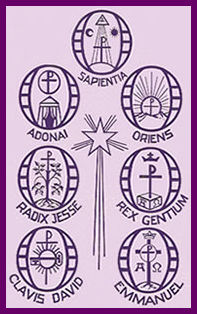
– 24/12/2023 –

Gospel Reading: Luke 1:26-38
vs.26 The angel Gabriel was sent by God to a town in Galilee called Nazareth,
vs.27 to a virgin betrothed to a man named Joseph, of the house of David;
and the virgin’s name was Mary.
vs.28 He went in and said to her,
“Rejoice, so highly favoured! The Lord is with you.”
vs.29 She was deeply disturbed by these words and asked herself what this greeting could mean,
vs.30 but the angel said to her,
“Mary, do not be afraid; you have won God’s favour.
vs.31 Listen! You are to conceive and bear a son, and you must name him Jesus.
vs.32 He will be great and will be called Son of the Most High. The Lord God will give him the throne of his ancestor David;
vs.33 he will rule over the House of Jacob for ever and his reign will have no end.”
vs.34 Mary said to the angel,
“But how can this come about, since I am a virgin?”
vs.35 “The Holy Spirit will come upon you,” the angel answered “and the power of the Most High will cover you with its shadow. And so the child will be holy and will be called Son of God.
vs.36 Know this too: your kinswoman Elizabeth has, in her old age, herself conceived a son, and she whom people called barren is now in her sixth month,
vs.37 for nothing is impossible to God.”
vs.38 “I am the handmaiden of the Lord,” said Mary “let what you have said be done to me.” And the angel left her.
***************************************************************
We have three commentators available from whom you may wish to choose . Scroll down to the name of the commentator.
Michel DeVerteuil : A THoly Ghost Father, and late director of the Centre of Biblical renewal .
Thomas O’Loughlin: Professor of Historical Theology, University of Nothingham
Donal Neary SJ: Editor of The Sacred Heart Messenger and National Director of The Apostlship of Prayer. ****************************************
Michel DeVerteuil
Lectio Divina with the Sunday Gospels
www.messenger.ie
General Comments
St Mark has no story of Mary’s conception of Jesus nor of her pregnancy, so the reading for the Fourth Sunday of Advent this year is from St Luke, and includes the story of the Annunciation.
It is difficult to enter into the story because we have long been accustomed to read it as uniquely the story of Mary, and therefore outside our experience. This is clearly against the intention of St Luke who had given us Mary as the model of the faithful one entering into God’s great plan for the world. Take her as model of a church community discovering its vocation to bring Jesus into the world, or an individual person discovering his or her personal vocation.
Take the story as a long journey during which God, through the angel, walks with Mary. He is accompanying her at every stage, until finally she surrenders herself to him and he leaves her.
Textual Comments
vs 26 – 28: Mary experiences herself deeply loved by God at her first encounter with His word.
vs 29 – 30: She is filled with awe but the angel reassures her, calling her by name.
vs 31 – 33: The angel unfolds God’s plan for her, a plan that is way beyond her own expectations for herself.
vs 34 – 35: Mary is in awe again, and once more she receives words of reassurance.
vs 36 – 37: The angle gives further grounds for trust by citing another example of God’s power.
vs 38a: Mary leaves herself humbly and trustingly in God’s hands and plan.
vs 38b: Mary is now perfectly at peace and the angel can leave her.
Scripture Reflection Prayer
L ord, there is something very wonderful stirring within your church today:
ord, there is something very wonderful stirring within your church today:
– she in entering into the struggles of the poor for a more human society;
– voices within the church speak out fearlessly against all forms of injustice;
– lay people grow in holiness through their family commitments and their
work
It seems that you have sent your angel to your church in our time,
with the good news that she is still your chosen one,
called to bring forth your Son into the modern world
and make the dreams of the ancient prophets a reality.
Naturally, we are confused and fearful, deeply disturbed by this word.
We have become set in our ways, sterile even.
Tell us again, Lord, through your holy angel, that we need not be afraid:
– that the power of the Most High will cover us with its shadow;
– what has been conceived within us will be your own child;
– that you have done wonderful deeds before, since nothing is impossible to you,
so that we may see ourselves as your humble servants,
letting you bring to fulfilment the word you have spoken to us.
Lord, we think today of all who are faced with difficult decisions:
– can they attempt a reconciliation?
– take on some new responsibility?
– engage themselves in a work of human liberation?
Send them an angel to walk with them as Gabriel walked with Mary,
– to call them by name;
– to speak a word of encouragement –
“Rejoice, so highly favoured, do not be afraid”;
– to assure them that what they have conceived will be great and a Son of the Most High;
– to remind them that nothing is impossible to you,
and finally, when they have accepted your will, to leave them.
Lord, we thank you today for those who have conceived a child
and received it as a sign that they are highly favoured.
Even if they feel deeply disturbed,
called to bring forth a holy child who is destined to live forever,
they see themselves as humble servants of this great mystery,
and give themselves trustingly to the fulfilment of your word.
 Lord, we thank you today for the many great women of our world.
Lord, we thank you today for the many great women of our world.
They conceived a vision within themselves, trusting that it came from you.
They struggled with feelings of infertility, imposed on them by society,
but they took courage from knowing that they were servants of a sacred work,
bringing to birth the rule of your Son.
Lord, we thank you for the precious moments of contemplative prayer,
when after a long journey with many doubts and hesitations,
with you at our side calming fears and answering questions,
we finally felt able to let the word you had spoken be done to us
and you could withdraw your sensible presence from us.
********************************************************
Thomas O’Loughlin
Liturgical Resources for the Year of Matthew
www.columba.ie
Introduction to the Celebration
Christmas is just about here, but we all know that there are still lots of things to be done. One of these things is for us as a community of the followers of Jesus to appreciate more fully that it is only in the life he brings to us and shares with us that we can be truly at rest and happy and at peace. So today at our sacred gathering there is a prayer running through all we say and do:
‘Lord, come into our hearts this Christmas as our Lord, Leader, and our Light.’
Homily Notes
1. Part of the way that Christians have always attempted to celebrate and communicate the mystery of the Lord has been to apply passages and titles to him from the time of the covenant of preparation: the time of the Old Testament. The liturgy abounds with such titles at this time, but most Christians miss them as they are found in the daily eucharistic liturgy and in the Liturgy of the Hours. Often when they do come up we pass on so quickly that we miss them, yet these titles express some of our most basic hopes.
2. The most famous set of Advent titles are the ‘Great ‘O’ Antiphons‘ that accompany the Magnificat at Evening Prayer Between 17 and 23 December. Exactly how old they are is disputed (Some date them to the Second Century Century), but by around 800 ad preachers were already using the acrostic for remembering their order to make a point in preaching.
The acrostic works like this: take the first letter of each in reverse order and it spells two words thus: ‘ero cras’ : ‘I will be here tomorrow’
O Sapientia 17 Dec. Our wisdom who is more than all human cunning.
O Adonai 18 Dec. Our leader who is like the morning star and calls us from sleep.
and calls us from sleep.
O Radix 19 Dec The one promised by the Father who frees us from darkness.
O Clavis 20 Dec The one who shows us the way that leads to peace.
O Oriens 21 Dec And he is the giver of light and happiness to suffering humanity.
O Radix 22 Dec He is God living among his people.
O Emmauel 23 Dec Jesus Christ whom we follow and who we are about to welcome again this Christmas is all of these, and more
The words ‘ero cras’ mean ‘I am coming tomorrow‘ literally: ‘I will be [here] tomorrow’. Jesus Christ whom we follow and who we are about to welcome again this Christmas is all of these, and more.
3. One of the ways that we expand our religious understanding is by expanding the range of names we use to name the divine. Here is a lovely set of names all addressing Christ using a different Old Testament range of images; it was by applying such images that the first Christology was Created. Using them today – and having the prophecy of Nathan as the first reading is a cue for bringing them to the foreground today —can deepen our appreciation of the mystery we are celebrating.
Final Note
This Sunday has another marian theme running through it — although in most circumstances it probably would only add noise to draw attention to it — which is the celebration of the moment of the Annunciation such as is celebrated in the recitation of the Angelus. Not only is the gospel reading that of the Annunciation, but the collect for today is the famous ‘Gratianz tuam’ known to generations of English-speaking Catholics as ‘Pour forth we beseech thee, O Lord, thy grace …’ and now rendered: ‘Lord, fill our hearts with your love’. If this is a theme that you want to explore, then one way of doing so is to recall that Christians — following the example of the Jews of the Second Temple — have always seen regular collective times of prayer as a way of both sanctifying the day and of praying as a whole body even if individuals are scattered.
In the early church this led to the practice of reciting the Our Father at dawn, noon, and sunset; while in more recent times it has been expressed in the recitation of the Angelus.
****************************************************************
Donal Neary SJ
Gospel Reflections
www.messenger.ie/bookshop/
Annunciations Big and Small
I got stuck miles away in a small village and had no public transport. It was a public holiday so I had to stay put. A family put me up for the night and fed me! This was an annunciation for me! Annunciations announce the coming of the Lord, favour from God. Life is full of little and big annunciations. Ways in which we bring the Son of God alive within the world. The beginning now of what would later be the resurrection event.

For Mary it was in the ordinary – maybe at the well, as she collected the water for the day. Or in her house. Any time we find genuine help, compassion, justice, all the gifts of God’s Spirit, then this is annunciation. It can be an annunciation of new faith and love in God. What Mary got at annunciation was the overshadowing of the Holy Spirit and the Son of God in her womb.
We are the people who find grace and hope in the middle of everything. Maybe like in a busy shop, the middle of a bus journey, and with the children and the friends and the family, at Mass or prayer. It can happen anywhere.
There is always a response. If we have been gifted, we give. Someone let me out of the carpark and I let the next person out. Someone visited me in hospital and I did the same later. Our Christmas way of celebration and helping others is a response.
Don’t ask how did you get over the Christmas, but did Christmas get into you! Let the big mystery of God’s love get deeply into us this time of year.
Remember when you felt close to God’s presence
in your live and give thanks.
Welcome, Lord Jesus.